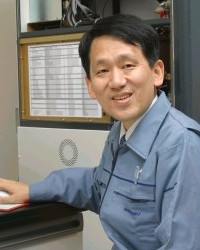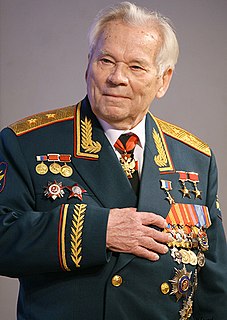A Quote by Neil Postman
We had learned how to invent things, and the question of why we invent things receded in importance. The idea that if something could be done it should be done was born in the nineteenth century. And along with it, there developed a profound belief in all the principles through which invention succeeds: objectivity, efficiency, expertise, standardization, measurement, and progress. It also came to be believed that the engine of technological progress worked most efficiently when people are conceived of not as children of God or even as citizens but as consumers-that is to say, as markets.
Quote Topics
Along
Also
Belief
Believed
Born
Came
Century
Children
Citizens
Conceived
Consumers
Could
Developed
Done
Efficiency
Efficiently
Engine
Even
Expertise
God
Had
How
Idea
Importance
Invent
Invention
Learned
Markets
Measurement
Most
Nineteenth Century
Objectivity
People
Principles
Profound
Progress
Question
Say
Should
Something
Standardization
Succeeds
Technological
Technological Progress
Things
Through
Which
Why
Worked
Related Quotes
You can't just stop technological progress. Even if one country stops researching artificial intelligence, some other countries will continue to do it. The real question is what to do with the technology. You can use exactly the same technology for very different social and political purposes. So I think people shouldn't be focused on the question of how to stop technological progress because this is impossible. Instead the question should be what kind of usage to make of the new technology. And here we still have quite a lot of power to influence the direction it's taking.
A large section of the idling classes of England get their incomes by believing that Jesus was born of a virgin and that Jonah swallowed a whale; and with the progress of science they were naturally finding this more and more difficult. A school of ingenious Bible-twisters arose, to invent symbolical and literary meanings for fairy tales, in order that people who no longer believed could continue with good conscience to collect the salaries of belief.
The thing I think I have learned from Wittgenstein is the importance of not making things up: philosophers should not invent problems, and they should also be conscious of the risk of inventing pointless 'technical' machinery which do not offer real explanations, but often just re-state the known facts in a more complex way.
One of the major changes in attitude that occurred in the world of art as we moved from the nineteenth into the twentieth century was that the twentieth century artist became more involved with personal expression than with celebrating exclusively the values of the society or the church. Along with this change came a broader acceptance of the belief that the artist can invent a reality that is more meaningful than the one that is literally given to the eye. I subscribe enthusiastically to this.
It's no use practicing too much. First you have to find out how to do it best. You have to be able to invent ways of doing better. Not only practice; obviously you have to practice. But to invent things how to do better. If somebody doesn't know what invention means, he should stop violin playing! You can't explain everything... Not practicing only: Think how to achieve quality.
I don't think I've invented anything. Henry Ford didn't invent the car, and Steve Jobs didn't invent the cell phone, and he didn't invent the digital revolution, but he could adapt, put things together in creative ways. So I think in what we do there's a lot of "let's try it and sees," whether it's a new color or a new style. But we didn't invent cosmetics or lingerie. How we market them - style, color - those are the things that we do, but it isn't pure creation. It's putting together ideas. I truly believe there's nothing really new in the world.
The nineteenth century was the last moment in history when a relatively educated layperson could follow what was going on in the world of science and invention to a wide degree. Also, there were no "professionals". This was a time when amateur explorers, naturalists and enthusiasts were are still making major contributions to progress.
The old idea that some genius pulls all of this stuff out of the air is ridiculous. As Ridley pointed out, the only way Edison could invent the lightbulb is because all the elements had been developed before. That's obvious it wasn't just his genius - 20 others developed it at the same time. And that's true for almost every invention and discovery.



































